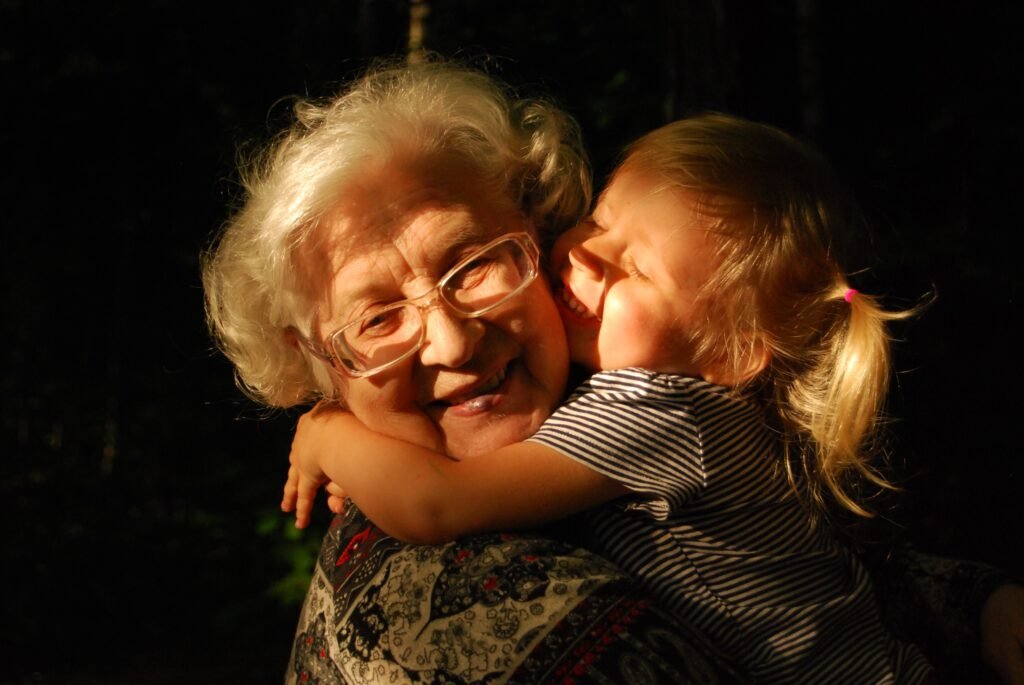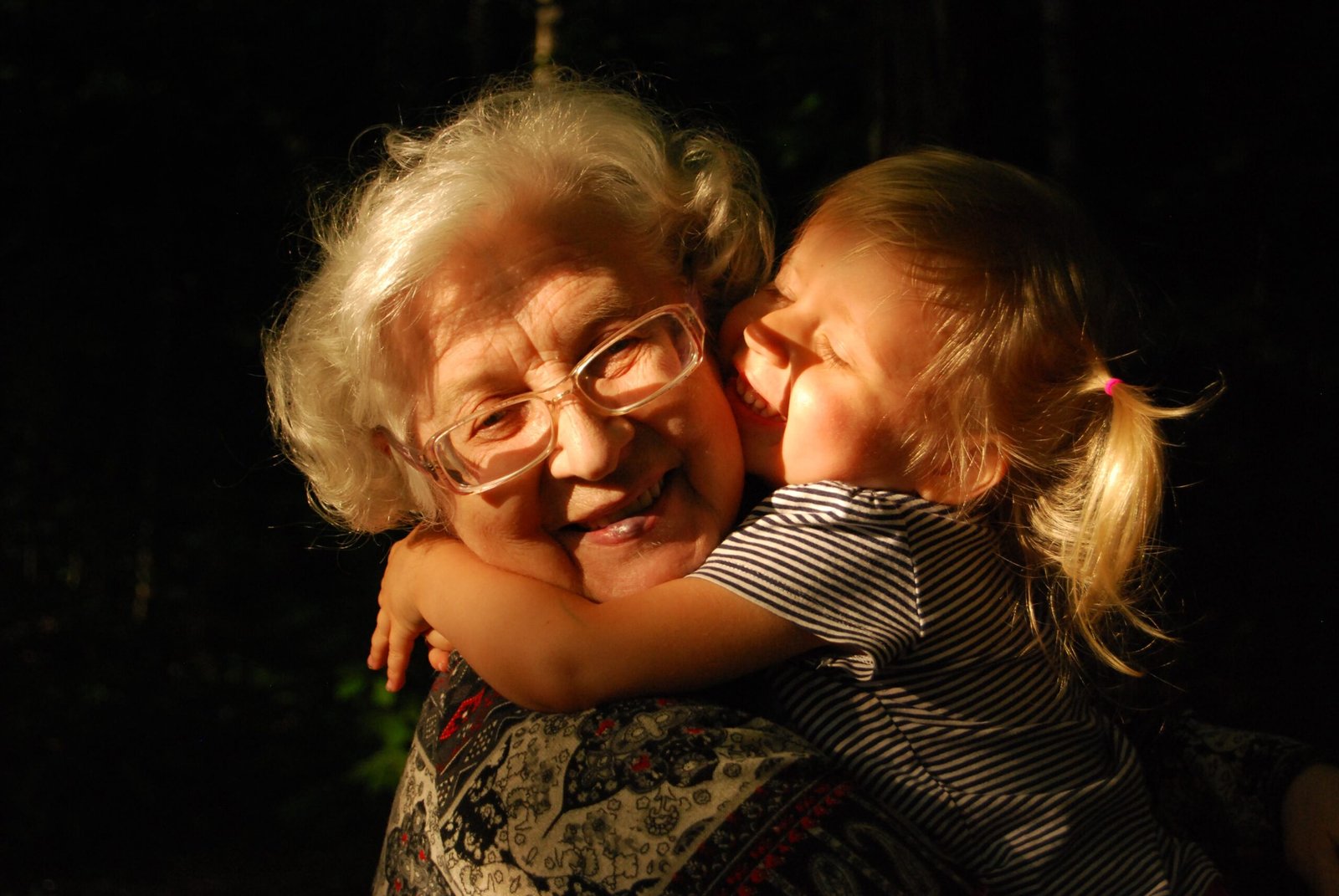You are faced with the everyday challenge of navigating through family conflicts and finding peaceful resolutions. In this article, we will explore effective strategies and techniques that can help you maintain harmony within your family dynamics. From open communication to compromise and empathy, you will discover practical tips to handle daily conflicts and foster a more harmonious environment for everyone involved. So, let’s delve into the world of family conflicts and learn how to navigate them with grace and understanding.

Understanding the Nature of Family Conflicts
Family conflicts are a natural part of any relationship, and they can arise for a variety of reasons. It is important to understand the common types of family conflicts to better navigate and resolve them.
Common Types of Family Conflicts
Family conflicts can take many forms, but some of the most common types include disagreements over household chores, financial issues, parenting decisions, and sibling rivalry. These conflicts often stem from differing opinions, values, and expectations within the family.
Identifying the Root Causes
To effectively resolve family conflicts, it is crucial to identify the root causes. This involves delving deeper into the underlying feelings, needs, and desires of each family member. By understanding why conflicts arise, you can address the core issues and prevent future conflicts from occurring.
Recognizing Patterns in Conflicts
Family conflicts often follow patterns or cycles. By recognizing these patterns, you can better understand the dynamics at play and develop strategies to break the cycle. Patterns may involve certain triggers, communication styles, or recurring themes. Awareness of these patterns is essential to implementing effective conflict resolution techniques.
Effective Communication Strategies
Effective communication is the key to resolving family conflicts and fostering healthy relationships. The following strategies can help improve communication within your family.
Active Listening
Active listening involves fully focusing on and understanding what the other person is saying. It requires giving your full attention, maintaining eye contact, and offering verbal or non-verbal responses to show that you understand and value their perspective. By actively listening, you can create a safe and open space for effective communication.
Expressing Emotions Constructively
Emotions play a significant role in family conflicts, and expressing them constructively is essential. Instead of suppressing or lashing out with anger, try to express your emotions in a calm and respectful manner. Use “I” statements to communicate how you feel without blaming or criticizing others. This approach promotes understanding and opens the door for productive discussion.
Using ‘I’ Statements
When discussing sensitive topics or conflicts, using “I” statements can help avoid putting blame on others. For example, instead of saying, “You always make a mess,” you can say, “I feel overwhelmed when there is clutter around.” This shift in language encourages personal responsibility and fosters a more collaborative approach to problem-solving.
Avoiding Blame and Criticism
Blame and criticism only escalate conflicts and hinder resolution. Instead, focus on the issue at hand and work towards finding a solution. Avoid attacking each other personally and strive to maintain a respectful and supportive tone throughout the conversation.

Creating a Positive Family Environment
Creating a positive family environment is crucial for preventing conflicts and building strong relationships. The following strategies can help foster a supportive and harmonious atmosphere within your family.
Building and Fostering Trust
Trust is the foundation of healthy relationships. By building trust within your family, you create an environment where conflicts can be openly addressed and resolved. Trust can be established by being reliable, keeping promises, and maintaining confidentiality. When trust is present, family members feel safe to express their thoughts and emotions without fear of judgment or betrayal.
Encouraging Open and Honest Communication
Encouraging open and honest communication is vital for addressing conflicts effectively. Create a culture of open dialogue where every family member feels comfortable expressing their opinions and concerns. Encourage active listening and show genuine interest in each other’s perspectives. By fostering open communication, you promote understanding and strengthen family bonds.
Promoting Respect and Empathy
Respect and empathy are fundamental in any conflict resolution process. Encourage family members to treat each other with kindness and consideration, even when disagreements arise. Remind everyone to consider each other’s feelings and perspective before responding. Practicing empathy creates a culture of understanding and compassion, which is essential for resolving conflicts peacefully.
Establishing Clear Family Values and Rules
Clear family values and rules provide a solid foundation for preventing conflicts. Establishing shared values, such as respect, honesty, and teamwork, helps guide family interactions and decision-making. Additionally, setting clear rules and expectations ensures that everyone understands the boundaries and responsibilities within the family. When expectations are clear, conflicts arising from misunderstandings or differing interpretations can be minimized.
Conflict Resolution Techniques
Resolving conflicts within your family requires specific techniques that promote understanding, collaboration, and compromise. The following techniques can help navigate and resolve family conflicts effectively.
Finding Common Ground
Seeking common ground is a powerful technique in conflict resolution. Look for areas of agreement or shared goals, and focus on those to build a foundation for resolution. By finding common ground, you shift the focus from differences to shared interests, fostering a cooperative atmosphere.
Seeking Compromise
Compromise involves finding middle ground and reaching agreements that address the needs of all family members involved. It requires a willingness to give and take, and a focus on finding solutions that are mutually beneficial. By seeking compromise, you demonstrate respect for everyone’s needs and foster a sense of fairness within the family.
Collaborative Problem-Solving
Collaborative problem-solving is a technique that encourages all family members to actively participate in finding solutions. This approach involves brainstorming ideas, sharing perspectives, and working together to find the best course of action. Collaborative problem-solving promotes teamwork and strengthens family bonds through shared decision-making.
Considering Different Perspectives
In family conflicts, it is essential to consider different perspectives. Each family member may have their own unique viewpoint and experiences that shape their opinions. By actively listening and being open to different perspectives, you broaden your understanding of the issue and increase the likelihood of finding a resolution that accommodates everyone’s needs.
Using Mediation or Professional Help
In some cases, conflicts within the family may be deeply rooted or challenging to resolve independently. In such situations, seeking mediation or professional help can be beneficial. A neutral third party, such as a therapist or counselor, can provide guidance and facilitate constructive communication. They can offer strategies tailored to your family’s specific dynamics, helping you navigate and resolve conflicts effectively.

Managing Anger and Emotions
Anger and intense emotions often accompany family conflicts. Learning to manage these emotions in a healthy way is crucial for constructive conflict resolution. The following strategies can help manage anger and emotions effectively.
Recognizing and Managing Anger Triggers
Anger triggers are specific situations or behaviors that contribute to feelings of anger. By recognizing your anger triggers, you can be proactive in managing your emotional responses. Take note of what situations or actions tend to provoke anger in yourself and others and develop strategies to diffuse or cope with those triggers.
Practicing Self-Control
Self-control plays a pivotal role in managing anger during family conflicts. Focus on staying calm and composed, even in the face of disagreement or provocation. Take deep breaths, count to ten, or step away momentarily if you feel your emotions escalating. Practicing self-control allows you to respond thoughtfully instead of reacting impulsively.
Taking Breaks to Cool Down
During heated moments in a family conflict, taking breaks to cool down can be beneficial. Temporarily stepping away from the situation gives you time to calm your emotions and gather your thoughts before continuing the discussion. Agree as a family to signal when someone needs a break, ensuring that it is respected and honored.
Using Relaxation Techniques
Engaging in relaxation techniques can help you manage anger and reduce stress during conflicts. Deep breathing exercises, meditation, or engaging in hobbies or activities that bring you joy can all contribute to a calmer state of mind. Experiment with different relaxation techniques to discover what works best for you and incorporate them into your conflict resolution strategies.
Seeking Therapy or Counseling
If anger or intense emotions consistently hamper your ability to resolve family conflicts, seeking therapy or counseling can provide valuable support. A therapist can assist you in developing coping mechanisms, understanding triggers, and exploring the underlying emotional dynamics within your family. Their expertise can help you gain insights and tools for managing anger effectively.
Developing Conflict Resolution Skills for Children
Teaching children healthy conflict resolution skills is vital for their personal growth and the overall harmony of the family. The following strategies can help you nurture these skills in your children.
Teaching Children About Emotions
Children need guidance in understanding and expressing their emotions. Help them identify different emotions and provide an environment where they feel safe expressing themselves. Teach them that it is normal to experience conflicts and that emotions are a natural part of the process. Encouraging emotional awareness will empower children to better navigate conflicts in a healthy and constructive manner.
Encouraging Effective Communication
Effective communication is a crucial skill for children to develop. Teach them the importance of active listening, using respectful language, and expressing their thoughts and feelings clearly. Encourage them to ask questions and seek clarification when needed. By fostering effective communication skills, children can express themselves authentically and navigate conflicts more successfully.
Teaching Problem-Solving Techniques
Problem-solving is a vital skill for conflict resolution. Teach your children various problem-solving techniques, such as brainstorming, compromising, and seeking win-win solutions. Guide them through real-life scenarios and encourage them to come up with their own solutions, fostering their critical thinking and decision-making abilities.
Promoting Empathy and Understanding
Empathy is the ability to understand and share the feelings of others. Teach your children the importance of empathy in conflict resolution by encouraging them to consider the perspectives and emotions of others. Role-play different scenarios and discuss how different people may feel in those situations. By promoting empathy and understanding, you equip your children with invaluable tools to resolve conflicts peacefully.
Implementing Conflict Resolution Techniques
To effectively resolve family conflicts, it is important to create an environment that supports positive communication and conflict resolution. The following strategies can help you implement conflict resolution techniques within your family.
Setting Aside Dedicated Time for Conflict Resolution
Designate specific times for addressing conflicts and resolving issues within your family. This approach ensures that conflicts are not brushed aside or left to fester, but rather given the necessary attention and priority they deserve. Regularly scheduling conflict resolution sessions shows a commitment to open communication and provides a structured platform for discussion.
Creating a Safe Space for Discussion
Creating a safe and non-judgmental space for family members to express themselves is crucial. Make sure everyone feels comfortable sharing their thoughts and emotions without fear of harsh judgment or criticism. This safe space encourages open dialogue and allows each family member to be heard and understood.
Establishing Ground Rules for Conflict Resolution
Establishing ground rules for conflict resolution sets clear expectations and structures the process. Rules may include using respectful language, allowing everyone to speak without interruption, and actively listening to each other. Ground rules help maintain a respectful and constructive atmosphere during conflicts and provide a framework for productive discussions.
Seeking Professional Help When Needed
If conflicts persist or escalate despite your best efforts, do not hesitate to seek professional help. Family therapy or counseling can provide valuable insights and techniques specific to your family’s dynamics. A professional can guide you through challenging conflicts and help strengthen your family bonds.
Addressing Long-Standing Family Conflicts
Long-standing family conflicts can be particularly challenging to address. When conflicts become deeply rooted, it may require additional effort and support to reach resolution. The following strategies can help you address long-standing family conflicts effectively.
Identifying Deep-Rooted Issues
Long-standing family conflicts often have underlying issues that need to be addressed. Take time to identify these deeper issues by examining the patterns, triggers, and emotions associated with the conflicts. Understanding the root causes allows you to approach the conflicts with greater clarity and work towards resolution on a deeper level.
Seeking Family Therapy or Counseling
If long-standing conflicts persist despite your efforts, seeking the help of a family therapist or counselor can provide significant support. A professional can facilitate constructive communication, help identify and address underlying issues, and guide your family towards healing and resolution. Family therapy provides a safe space for all family members to express their perspectives and work towards understanding and forgiveness.
Working on Forgiveness and Understanding
Forgiveness and understanding are essential for healing long-standing family conflicts. It requires letting go of past grievances, grudges, and resentments. Encourage open and honest discussions centered around empathy and compassion. Work towards building bridges and repairing damaged relationships. With time, patience, and effort, forgiveness and understanding can pave the way for resolution and growth.
Preventing Future Conflicts
Preventing future conflicts within your family is an ongoing process that requires attention and effort. The following strategies can help you create an environment that minimizes conflicts and fosters strong relationships.
Building and Maintaining Strong Relationships
Investing in building and maintaining strong relationships within your family is key to preventing conflicts. Prioritize quality time together, engage in shared activities, and create opportunities for bonding. By fostering strong relationships, you build a solid foundation of trust and understanding that can withstand conflicts more effectively.
Regularly Reassessing Family Dynamics
Family dynamics evolve over time, and regularly reassessing them is crucial. Check-in with each family member to gauge their needs, concerns, and overall satisfaction within the family unit. Adjustments can be made to address emerging conflicts or prevent future ones. Regularly reassessing family dynamics ensures that every member’s voice is heard and strengthens the family unit.
Fostering a Supportive and Nurturing Environment
Creating a supportive and nurturing environment is instrumental in preventing conflicts. Encourage open communication, empathy, and mutual support within your family. Be attentive to each other’s needs and offer encouragement and validation. By fostering a nurturing environment, you create a sense of belonging and security that helps prevent conflicts from arising.
Seeking External Support
When navigating family conflicts, seeking external support can provide guidance, perspective, and validation. The following avenues can offer valuable assistance in resolving family conflicts.
Considering Family Therapy or Counseling
Family therapy or counseling provides a structured and supportive setting for resolving family conflicts. A trained professional can guide your family through the resolution process, offering insights and interventions tailored to your unique circumstances. By seeking the support of a therapist or counselor, you gain access to additional tools and strategies to navigate conflicts effectively.
Reaching Out to Support Groups
Support groups can provide a valuable community of individuals facing similar challenges within their families. Connecting with others who have firsthand experience with family conflicts allows for shared understanding, empathy, and advice. Joining a support group can alleviate feelings of isolation and offer valuable insights into resolving conflicts.
Consulting with Trusted Individuals or Mentors
Consulting with trusted individuals or mentors can offer an outside perspective on family conflicts. Seek guidance from individuals you respect and admire, such as close friends, family members, or mentors. Their wisdom and insights can provide valuable guidance and help you gain a fresh perspective on resolving conflicts within your family.
Resolving family conflicts requires effort, patience, and a commitment to open and respectful communication. By understanding the nature of family conflicts, implementing effective communication strategies, creating a positive family environment, utilizing conflict resolution techniques, managing anger and emotions, teaching conflict resolution skills to children, and seeking external support when needed, you can navigate conflicts and foster harmonious relationships within your family. Remember, conflicts are opportunities for growth and learning, and by addressing them with care and consideration, your family can emerge stronger and more resilient.
